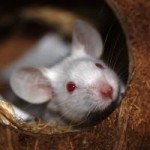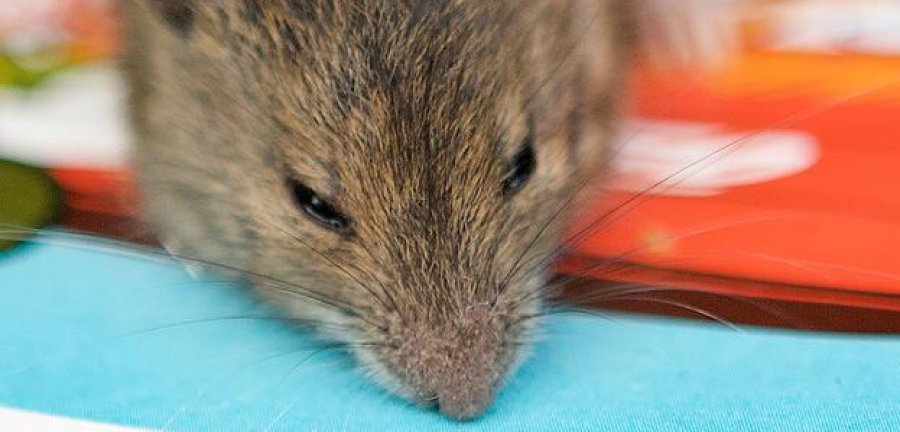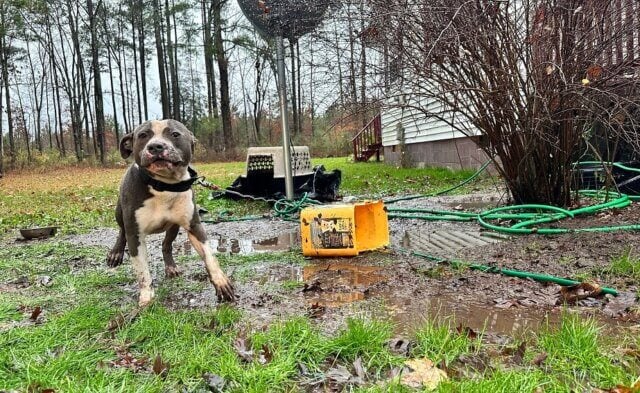
Mice become emotionally attached to each other, love their families, and easily bond with human guardians. As intelligent as our canine friends, they’re natural students who excel at learning and understanding concepts. They can even recognize their names and respond when called.
Unfortunately, millions of these gentle animals are killed in experiments each year in the U.S. alone. These small, sensitive creatures are not even protected under the Animal Welfare Act, which exempts birds, rodents, and coldblooded animals entirely from consideration.
Millions more suffer and die each year in the “pet” trade and as victims of cruel “pest” control methods such as glue traps. PETA is doing everything possible to stop the abuse of mice, and with the support of our Augustus Club members, we’re making huge strides.
Through our regulatory testing division, PETA has spared hundreds of thousands of mice the pain and suffering of deadly toxicity tests. And just as our Beauty Without Bunnies campaign efforts have saved countless mice from tests conducted by cosmetics companies, we have stopped animal testing by other types of companies as well.
After uncovering cruel and unnecessary experiments that major beverage manufacturers were funding in order to make health claims about their products, PETA convinced them to drop the animal tests. POM Wonderful had paid experimenters to inflict brain damage on mice, PepsiCo—the parent company of brands such as Pepsi-Cola, Tropicana, and Gatorade—and its partners had funded experiments in which they implanted tumors in mice, and Ocean Spray had paid for experiments in which mice were given stomach ulcers and brain injuries. But because of PETA’s powers of persuasion, including letters and calls from our members, these companies agreed to end all animal tests.
In addition, within days of a meeting between Lipton executives and representatives of PETA entities, Unilever—the parent company of Lipton—declared that it would ban experiments on animals for all its tea products. Lipton had paid experimenters to expose mice to diseases, then feed tea ingredients to them and eventually kill them by painful methods such as decapitation and neck-breaking.
PETA is also working hard to end the use of glue traps. One of the cruelest killing methods in existence, these traps cause severe injuries—including broken bones and torn-off patches of skin—and almost unimaginable terror as mice and other small animals struggle in the traps before succumbing to shock, dehydration, asphyxiation, or blood loss.
With your support, PETA’s efforts have led to the removal of glue traps from the shelves of retailers all over North America, including Albertsons, CVS, Dollar General, Dollar Tree, Longs Drugs, Osco Drug, Rite Aid, RONA, Safeway, USA Drug, and Walgreens—totaling more than 40,000 stores! In addition, PETA has convinced the top five self-storage companies—including Public Storage, Extra Space Storage, and U-Haul—to ban the cruel devices.
The pet trade victimizes millions of mice every year. But thanks to PETA’s eyewitness investigations, the trade has lost two major links in the supply chain.
From the tiniest mouse to the largest elephant, PETA works to improve the lives of all animals, and with your support, we’re succeeding.
This article was originally published in PETA’s Augustus Club newsletter. PETA’s Augustus Club is a complimentary club honoring those who are leaving a legacy for animals through a planned gift to PETA. If you have made a planned gift to PETA, please let us know so that we can thank you! If you have not yet left a legacy for animals but would like information on how to do so, please contact us.





